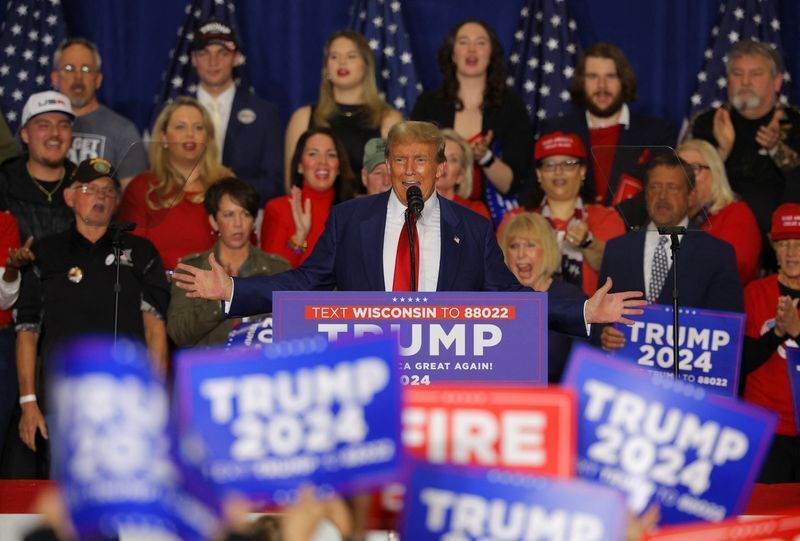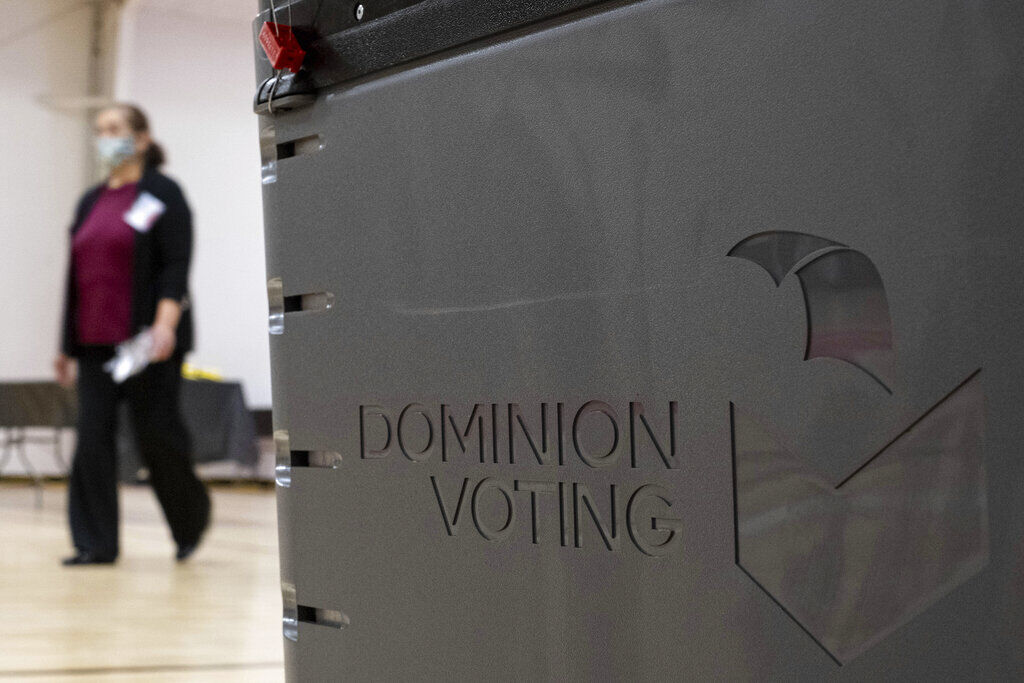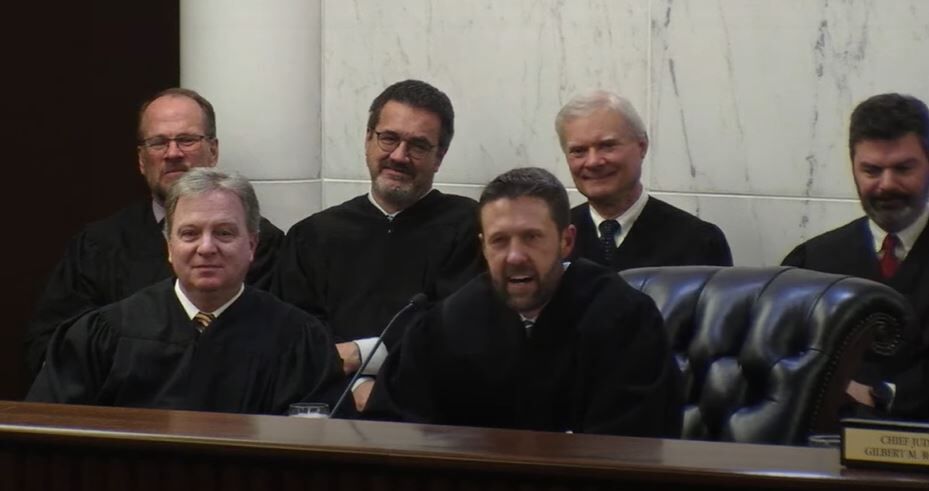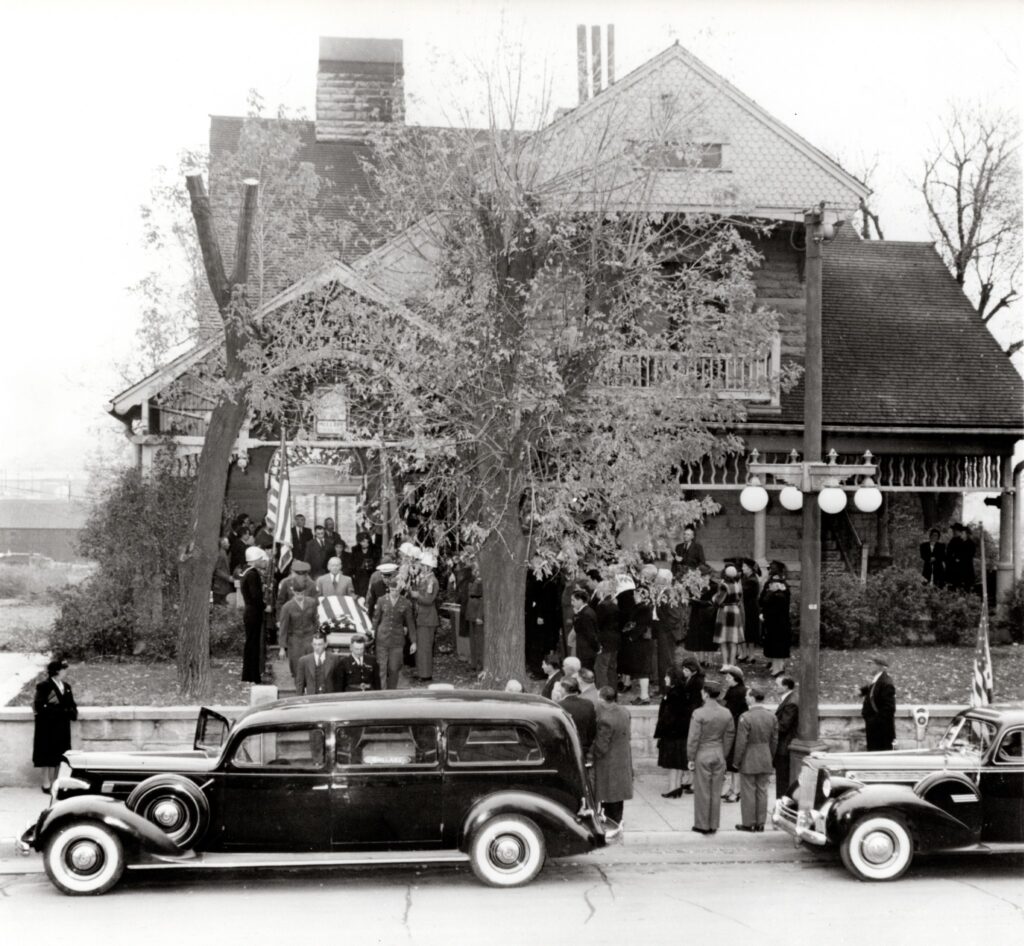Ex-Dominion executive’s defamation claims may proceed against Trump campaign and supporters

Colorado’s second-highest court on Thursday agreed a former executive of Denver-based Dominion Voting Systems may proceed with his defamation lawsuit against Donald Trump’s presidential campaign and several prominent supporters who publicly accused him of rigging the 2020 election based on the unproven claims of a conservative podcaster.
A three-judge panel for the Court of Appeals concluded Eric Coomer, the director of product strategy and security for Dominion, presented sufficient evidence the statements accusing him of criminal conduct were false and made maliciously amid a broader campaign by Trump to discredit his election loss.
There was a “reasonable likelihood that a jury could find that defendants were touting the theory as fact – whether for entertainment purposes or to bolster their claims of election irregularities more generally – without being convinced beyond serious doubt of its truth,” wrote Judge Karl L. Schock in the April 11 opinion.
Case: Coomer v. Trump for President et al.
Decided: April 11, 2024
Jurisdiction: Denver
Ruling: 3-0
Judges: Karl L. Schock (author)
Anthony J. Navarro
W. Eric Kuhn
Background: Denver judge says former Dominion Voting employee’s defamation suit can proceed
The defendants, who included Trump’s campaign; Trump’s former lawyer, Sidney Powell; conservative commentator Michelle Malkin; and The Gateway Pundit website, sought to dismiss Coomer’s lawsuit under Colorado’s relatively-new “anti-SLAPP” law, which stands for “strategic lawsuits against public participation.” The legislature enacted the law in 2019 to provide a mechanism to quickly dispose of litigation that implicates a person’s First Amendment rights – specifically, the rights to free speech and to petition the government.
Although the Court of Appeals has interpreted the anti-SLAPP law in the context of consumer reviews and in elections-related communications, Coomer’s case is the first to address a defendant’s unsubstantiated claims of election fraud with national implications.
‘A straight line’ to Jan. 6
Previously, a trial judge found “overwhelming” evidence of defamation, and the appeals panel similarly believed a jury could find in Coomer’s favor. Coomer’s claims originated in a November 2020 podcast recorded by Joe Oltmann, who is also a defendant. Days after the presidential election, Oltmann alleged he had recently listened in on an “antifa” conference call – a reference to anti-fascist ideology.
On the call, an unnamed participant referenced “Eric … the Dominion guy.” Oltmann alleged “Eric” said, “Don’t worry about the election, Trump is not gonna win. I made f-ing sure of that.”

Oltmann then conducted his own “investigation” by Googling the terms “Eric,” “Dominion,” and “Colorado.” Based on limited other information found online, he concluded Coomer was the one who allegedly made the comments of election rigging. Oltmann repeated his story publicly, including on the outlets of other defendants, even after the Cybersecurity & Infrastructure Security Agency found “no evidence that any voting system deleted or lost votes, changed votes, or was in any way compromised.”
Trump and his son, Eric Trump, subsequently retweeted the news about Oltmann’s claims. Powell, in an interview, said Oltmann’s story was “true” and “I think we have a copy of the call.” Another of Trump’s lawyers, Rudy Giuliani, called Coomer a “vicious man” with an intent to “fix the election.”
None of the defendants contacted Coomer about the allegations. Since then, one defendant, Newsmax Media, apologized to Coomer and was dismissed from his lawsuit. The other defendants moved to dismiss under the anti-SLAPP law, but Denver District Court Judge Marie Avery Moses denied the request in its entirety.
“Oltmann et al.’s allegations incited threats of real violence against Coomer by disclosing his home address, encouraging the public to find him, and calling him a traitor, and calling for him to be put to death,” she wrote in May 2022. “Further, there is evidence that the Trump Campaign had incentive to defame Coomer both in support of former president Trump and to continue to solicit campaign contributions under the guise of challenging the election results.”
Moses deemed Oltmann’s story of the antifa call “wholly incredible” and determined the other defendants could be faulted for not entertaining serious doubts about the reliability of his allegations. She also agreed there was “a straight line” that could be drawn from Oltmann’s commentary to the Jan. 6, 2021 attack on the U.S. Capitol by Trump supporters.

Fact v. opinion
The defendants appealed her ruling, leading to a rare 90-minute oral argument in front of the appellate panel earlier this year. Coomer’s attorney called the lawsuit the “only chance” for Coomer to restore his reputation, and emphasized the far-fetched nature of the claims made about him.
“Time and again, as these defendants are repeating these statements over and over, there’s never any facts about how Dr. Coomer might have done this or how an election might have been stolen. The issue was, the facts didn’t matter to any of these defendants. The story mattered,” said attorney Zachary Bowman. “Portraying Dr. Coomer as a villain, as an evil mastermind who had his thumb on the button” was the point.
“Let’s assume that the story happened exactly as Oltmann said in his affidavit and on the first podcast,” said Schock, referencing the allegations of what he heard on the antifa call. “What was the basis for him concluding that that person was Eric Coomer?”
Andrew C. Nickel, representing the Trump campaign, mentioned Oltmann’s “Google search” and ability to “match the voice,” plus Coomer’s social media posts critical of Trump.
“Is there anything else?” Schock asked.
“I don’t believe so,” Nickel responded.
The panel largely agreed with Moses’ conclusion, noting the “explosive claim” about what Coomer said on the call could be proven true or false. Schock rejected the idea that some of the defendant’s commentary was opinion only.
“And as to the statements in question, defendants did not hedge. They did not even couch the statements with qualifying language like ‘I think,’ ‘I believe,’ or ‘in my opinion’,” he wrote. “Rather, they reported Oltmann’s account in declarative terms and then connected it to claimed election irregularities.”
Schock added that commentators or podcasters “need not investigate every topic discussed on the show,” but their failure to fact-check Oltmann was a factor for jurors to consider when weighing their liability.
Although the Court of Appeals allowed Coomer’s claims for defamation and intentional infliction of emotional distress to proceed, the panel mostly dismissed Coomer’s claim alleging a conspiracy.
Giuliani, another of the defendants, was not affected by the decision because of his ongoing bankruptcy proceedings, which stemmed from his separate obligation to pay $148 million to two Georgia election workers he defamed.
The case is Coomer v. Donald J. Trump for President, Inc. et al.














